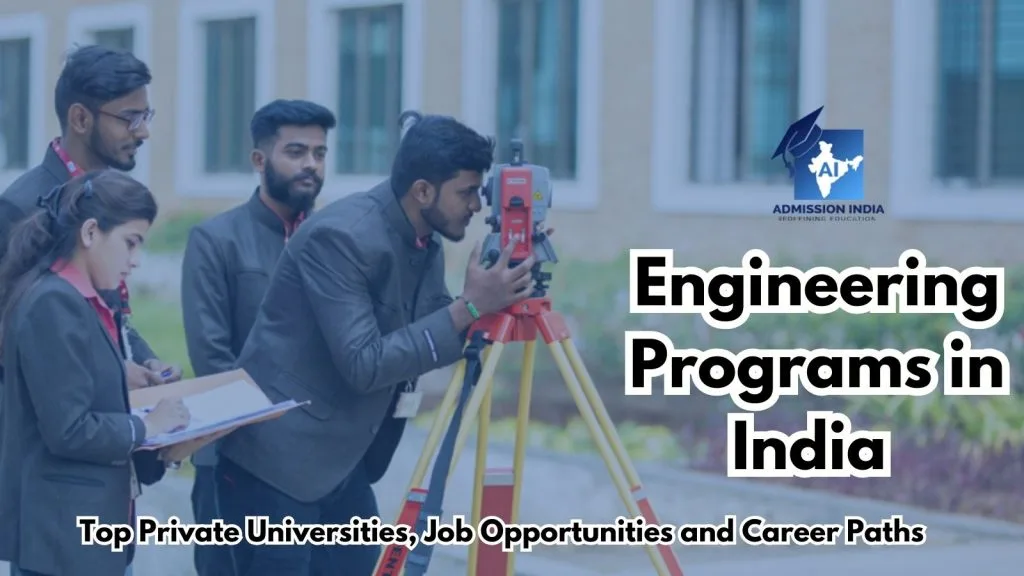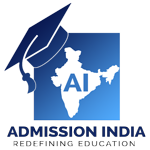

Here are some of the top private universities in India known for their engineering programs:
Birla Institute of Technology and Science (BITS), Pilani
Famed for its engineering programs, it ranks among India’s leading private institutions.
Provides a diverse range of undergraduate and postgraduate programs in engineering and technology.
Vellore Institute of Technology (VIT), Vellore
Known for its strong engineering curriculum and infrastructure.
offers a broad spectrum of undergraduate, postgraduate, and doctoral programs in engineering.
SRM Institute of Science and Technology (SRMIST), Chennai
It provides a wide range of engineering programs and is recognized for its focus on research.
Maintains robust connections with industries to facilitate internships and placements.
Manipal Institute of Technology (MIT), Manipal
A leading private institute known for its engineering education.
Provides a range of undergraduate, postgraduate, and doctoral programs in engineering and technology.
Amity University, Noida
Known for its comprehensive engineering programs and modern infrastructure.
Provides a broad array of engineering specializations at both undergraduate and postgraduate levels.
Thapar Institute of Engineering and Technology, Patiala
Well-known for its engineering programs and research initiatives.
Provides a range of undergraduate, postgraduate, and doctoral programs in engineering and technology.
Shiv Nadar University, Greater Noida
Offers innovative engineering programs with a focus on interdisciplinary education and research.
Known for its modern campus and global academic collaborations.
Symbiosis Institute of Technology (SIT), Pune
Part of the Symbiosis International University, known for its engineering programs.
Provides undergraduate and postgraduate programs in a wide array of engineering disciplines.
Lovely Professional University (LPU), Jalandhar
Renowned for its vast campus and diverse array of engineering programs, the institution offers undergraduate, postgraduate, and doctoral programs in engineering and technology.
Jaypee Institute of Information Technology (JIIT), Noida
Offers quality engineering education with a strong emphasis on research and innovation.
Known for its industry partnerships and placement opportunities.
These private universities are recognized for their academic excellence, infrastructure, industry connections, and placement records. When considering any university, it’s important to research their specific programs, faculty expertise, accreditation, and campus facilities to find the best fit for your educational and career goals.
Job Opportunities During Engineering Degree in India
During your engineering degree in India, there are several job opportunities you can explore depending on your field of specialization and interests. Here are some common options:
- Internships: Many companies offer internships to engineering students, which can provide valuable hands-on experience and potentially lead to full-time employment after graduation.
- Campus Placements: Most engineering colleges in India have placement cells that facilitate campus recruitment by companies. This is a common route for students to secure jobs before they graduate.
- Government Jobs: Organizations like Public Sector Undertakings (PSUs) and government departments regularly recruit engineering graduates through exams like UPSC, SSC, and state-level public service exams.
- Private Sector Jobs: Various industries such as IT, manufacturing, telecommunications, automotive, and healthcare hire engineering graduates for roles ranging from software development to project management to design engineering.
- Startups: India has a burgeoning startup ecosystem, particularly in cities like Bengaluru, Hyderabad, and Pune. Startups often seek engineering talent for innovation and growth.
- Higher Studies: Some students opt to pursue higher studies abroad or in India, specializing further in their field or pursuing research.
- Entrepreneurship: With the support of government initiatives like Startup India, many engineering graduates are venturing into entrepreneurship, starting their own tech companies or ventures.
- Consulting: Engineering graduates with strong analytical and problem-solving skills are in demand in consulting firms, where they can work on diverse projects across industries.
- Freelancing and Remote Work: With the rise of digital platforms, engineering graduates can explore freelance opportunities or remote work options in areas like software development, web design, and more.
To make the most of these opportunities, it’s essential to build a strong resume through internships, projects, and networking. Keeping abreast of industry trends and acquiring relevant skills through online courses or certifications can also enhance your employability.
Read Also: Top MBA Specializations with High Salary Prospects in 2024
Career Guide After Engineering Degree:
After completing an engineering degree in India, there are numerous career paths you can pursue depending on your specialization, interests, and goals. Here’s a detailed career guide to help you navigate your options:
- Core Engineering Roles:
Job Roles: Engineer, Design Engineer, Project Engineer, Production Engineer, Quality Control Engineer, Maintenance Engineer, etc.
Industries: Manufacturing, Automotive, Aerospace, Construction, Energy, Electronics, IT, Telecommunications, etc.
Skills Needed: Technical proficiency in your engineering discipline, problem-solving abilities, analytical skills, and knowledge of relevant software/tools.
- Higher Studies:
Master’s Degree (M.Tech/M.E.): Specialize further in your field of interest (e.g., Structural Engineering, Computer Science, Electrical Systems).
MBA: Transition into management roles in engineering or related sectors, especially beneficial for roles in project management, consulting, and entrepreneurship.
Ph.D.: Pursue research and development careers, contribute to academia, or work in advanced technology sectors.
- Government Sector Jobs:
Public Sector Undertakings (PSUs): Many PSUs recruit engineers through exams like GATE (Graduate Aptitude Test in Engineering) for roles in organizations like ONGC, BHEL, IOCL, etc.
Civil Services: UPSC exams offer roles like Indian Engineering Services (IES), which involve administrative and technical responsibilities.
- Management and Consulting:
Management Consulting: Utilize your technical background to advise businesses on strategy, operations, and technology.
Project Management: Oversee engineering projects from planning to execution, ensuring timely and efficient delivery.
- Entrepreneurship and Startups:
Startup Founder: Start your venture based on a technological innovation or service gap in the market.
Incubators and Accelerators: Join programs that support startup growth and provide mentorship.
- Information Technology (IT) and Software Development:
Software Engineer/Developer: Apply programming and engineering skills in software development roles.
Data Science and Analytics: Use engineering principles in data-driven decision-making and analytics roles.
- Research and Development (R&D):
Roles: Research Scientist, R&D Engineer, Innovation Manager.
Industries: Technology firms, Research Institutions, Defense, Pharmaceuticals, Automotive, etc.
Skills Needed: Strong analytical skills, creativity, and a passion for innovation.
- International Opportunities:
Global Companies: Multinational corporations offer opportunities abroad for engineers with specialized skills and global experience.
Higher Education: Pursue advanced studies or research abroad in collaboration with reputed universities and research centers.
- Skills Development and Certifications:
Professional Certifications: Obtain certifications in specialized areas like Project Management (PMP), Six Sigma, Autodesk, etc., to enhance your skills and employability.
Soft Skills: Cultivate essential communication, leadership, and teamwork abilities vital for advancing careers and assuming leadership roles.
- Networking and Professional Associations:
Industry Associations: Join professional bodies relevant to your engineering discipline to network with peers, attend conferences, and stay updated with industry trends.
Considerations:
Market Trends: Research industry demand and growth prospects for various career paths.
Personal Interests: Choose a career aligned with your passions and long-term goals.
Financial Planning: Consider salary expectations and career progression in your chosen field.
By exploring these options and aligning them with your skills and aspirations, you can strategically plan your career after completing your engineering degree in India. Continuously updating your skills, networking, and staying abreast of industry developments will further enhance your career prospects and growth opportunities.
Conclusion
Engineering programs in India, particularly at top private universities, offer a comprehensive education that combines rigorous academic training with practical, hands-on experience. These institutions provide numerous job opportunities during the degree, including internships and cooperative education programs, which help students gain valuable industry experience and build professional networks. After graduation, engineering students can pursue diverse career paths across various sectors, including technology, manufacturing, research and development, and consultancy. The strong foundation provided by these programs equips graduates with the skills and knowledge necessary to succeed in an ever-evolving job market, ensuring a bright future for aspiring engineers.
